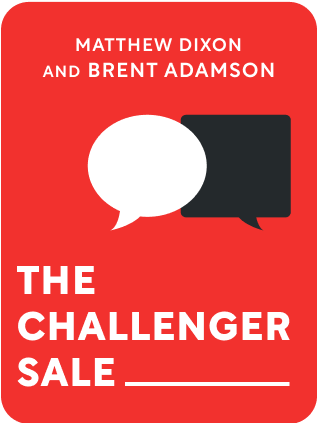

This article is an excerpt from the Shortform summary of "The Challenger Sale" by Matthew Dixon and Brent Adamson. Shortform has the world's best summaries of books you should be reading.
Like this article? Sign up for a free trial here .
Are you a sales manager looking to add Challenger Sellers to your team? What are the best sales hiring questions to find Challenger Sellers?
These sales hiring questions from The Challenger Sale can help you weed out the top-tier candidates in your pool, and identify current or potential Challenger Sellers. Setting your reps up for success starts with the hiring process. These sales hiring questions can help.
Challenger Hiring Guide: Key Sales Questions
The following are key Challenger competencies along with several examples of sales hiring questions to determine how well a sales rep candidate measures up. Use these Challenger sale questions to find the best Challenger sales rep.
Offers unique perspective
- Key questions: How do you typically open a sales conversation? Describe a time when you got a customer to think differently about a need or problem.
Drives two-way communications
- Key questions: How do you get customers to talk about their priorities? Describe a time when you brought up an unstated customer need.
Knows customer value drivers
- Key questions: What’s your process for gaining buy-in from stakeholders? How do you decide what is and isn’t important to a decision-maker?
Can identify economic drivers
- Key questions: What resources do you use to learn about the customer’s business environment? Give an example of a new customer opportunity you identified.
Comfortable discussing money
- Key questions: Describe a time when you successfully pushed through a price increase. How do you respond to a demand for a discount?
Able to push the customer
- Key questions: Describe an instance where you moved a stalled deal forward? How do you build consensus among everyone involved in a deal?
Lessons For Managers
Even as you use Challenger Sale questions to find Challenger sellers, remember that every high performer isn’t a Challenger: Part of the rationale behind the Challenger Selling Model is to replicate what Challengers do naturally across the rest of the sales force. But not all high-performers are Challengers. It’s important to avoid mistakenly using high-performing Relationship Builders and Lone Wolves as teaching examples, since you’ll teach non-Challenger behaviors and tactics. You can use the abbove sales hiring questions to identify the high-performing Challengers you want everyone to emulate. But as you do this, there are important things to keep in mind that might stand in your way of being a great Challenger Sale manager.
Don’t emulate the Lone Wolf: While Lone Wolves can be highly successful (25% of them are high performers), a sales force consisting entirely of Lone Wolves would be dysfunctional. Each does their own thing, so you can’t replicate their behavior across the organization and you couldn’t manage a sales force like this. Creating collaborative solutions for customers requires teamwork—however, Lone Wolves behave independently of rules and sales processes.
Start recruiting Challengers: While you can develop Challengers through training and coaching, it also saves time to recruit them when you have openings or new positions. And make sure you use the sales hiring questions above for the best evaluation of candidates.
This requires a different interview process. You need to target different competencies, ask different questions, and apply different evaluation standards. Appendix C provides a Challenger Hiring Guide.
Develop rep skills and organizational capability at the same time: To get the full benefit from the Challenger Selling Model, companies need to improve both individual skills and organizational capabilities. Developing both at the same time speeds up the overall transition, since the capabilities are complementary. For instance, reps need presentation materials developed by marketing professionals, and marketing people need feedback and information from reps to create great materials.
These sales hiring questions can help you identify potential Challenger Sellers that will be an asset to your team. You can also use these Challenger sales questions as a way to evaluate your new hires as well.

———End of Preview———
Like what you just read? Read the rest of the world's best summary of Matthew Dixon and Brent Adamson's "The Challenger Sale" at Shortform .
Here's what you'll find in our full The Challenger Sale summary :
- Why the best salespeople take control of the sale and challenge the customer's thinking
- How to package your company with a key insight to spark an "a-ha" moment
- How to get the organizational support you need to maintain your sales edge






